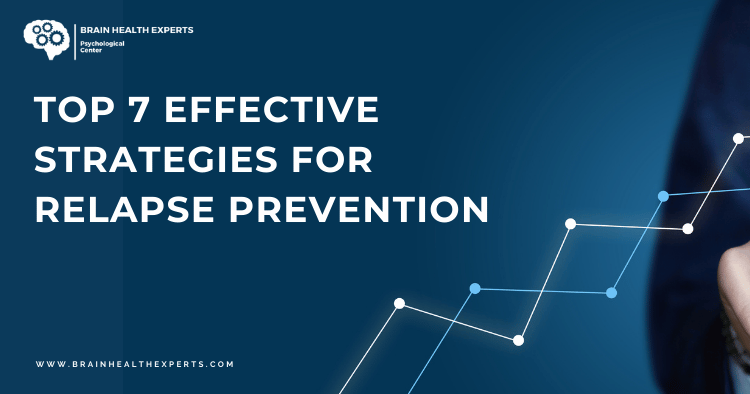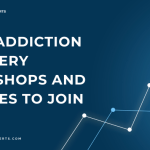Table of Contents
- Introduction
- 1. Build a Support Network
- 2. Develop Coping Skills
- 3. Set Clear Goals
- 4. Monitor Your Triggers
- 5. Practice Self-Care
- 6. Engage in Healthy Activities
- 7. Seek Professional Help
- Conclusion
- FAQs
Introduction
Relapse is a common concern for individuals recovering from addiction or other behavioral issues. Understanding the dynamics of relapse and how to effectively prevent it can empower you to maintain a healthier lifestyle. In this article, we’ll explore the top seven strategies for relapse prevention that can help you stay on track and lead you toward a fulfilling life. Whether you’re recovering from substance abuse, compulsive behaviors, or any other challenge, these strategies can provide you with the tools you need to succeed.
1. Build a Support Network
Creating a robust support network is one of the most crucial steps in relapse prevention. Surrounding yourself with understanding and encouraging individuals can make a significant difference in your recovery journey.
Why It Matters
Support networks, which can include friends, family, support groups, or therapists, offer emotional support and accountability. When you share your experiences and struggles, you reduce the feeling of isolation that often accompanies recovery.
How to Build Your Network
- Identify Supportive People: Make a list of individuals who are positive influences in your life.
- Join Support Groups: Consider attending local or online support groups like Alcoholics Anonymous (AA) or Narcotics Anonymous (NA). These groups provide a safe space to share experiences.
- Communicate Openly: Be transparent about your recovery journey with your support network. This openness fosters trust and understanding.
Explore how positive thinking can transform your relationships.
2. Develop Coping Skills
Relapse often occurs when individuals face stress or triggers without adequate coping mechanisms. Developing effective coping skills can prepare you for challenging situations.
Strategies to Consider
- Mindfulness and Meditation: Practices like mindfulness can help you stay grounded. Apps like Headspace or Calm can guide you in developing a meditation routine.
- Journaling: Writing about your thoughts and feelings can be therapeutic. It allows you to process emotions and reflect on your experiences.
- Breathing Exercises: Simple deep-breathing techniques can help reduce anxiety and improve emotional regulation.
Table: Coping Skills and Their Benefits
| Coping Skill | Benefits |
|---|---|
| Mindfulness | Reduces anxiety and improves focus |
| Journaling | Enhances self-awareness |
| Breathing Exercises | Calms the nervous system |
Also, check out proven stress management techniques for daily relief to enhance your coping strategies.
3. Set Clear Goals
Establishing clear, achievable goals provides direction and motivation during recovery. Goals can help you focus on the future rather than past behaviors.
How to Set Effective Goals
- SMART Goals: Ensure your goals are Specific, Measurable, Achievable, Relevant, and Time-bound. For example, “I will attend three support group meetings this month.”
- Short-term vs. Long-term: Break larger goals into smaller, manageable steps. Celebrate your achievements along the way to stay motivated.
Example of SMART Goals
| Goal Type | Example |
|---|---|
| Short-term | Attend weekly support meetings |
| Long-term | Maintain sobriety for one year |
For more on goal-setting, refer to key strategies for effective goal setting success.
4. Monitor Your Triggers
Understanding your triggers is vital in relapse prevention. Triggers can be emotional, environmental, or social cues that prompt cravings or undesirable behaviors.
Steps to Monitor Triggers
- Keep a Trigger Journal: Document situations that lead to cravings. Analyze patterns to identify your triggers.
- Create a Trigger Plan: Develop a strategy for dealing with triggers. This might involve avoiding certain places or situations or having an emergency contact to call when feeling vulnerable.
Being aware of your triggers is a proactive step in protecting your recovery journey.
5. Practice Self-Care
Self-care is essential for maintaining physical and emotional well-being. It can also reduce the chances of relapse by improving mood and reducing stress.
Self-Care Strategies
- Physical Activity: Regular exercise boosts endorphins and improves mood. Aim for at least 30 minutes of physical activity on most days.
- Healthy Eating: A balanced diet can have a positive impact on your mental health. Focus on whole foods, lean proteins, and plenty of fruits and vegetables.
- Sleep Hygiene: Prioritize getting 7-9 hours of quality sleep each night. Good sleep can improve emotional resilience.
Consider integrating effective techniques to boost your sleep hygiene into your routine for better overall health.
6. Engage in Healthy Activities
Filling your time with positive, engaging activities can help distract you from cravings and reduce the likelihood of relapse.
Suggestions for Healthy Activities
- Hobbies: Explore new interests or revisit old hobbies. Whether it’s painting, gardening, or hiking, find something that brings you joy.
- Volunteering: Helping others can provide a sense of purpose. Look for local organizations that align with your interests.
- Socializing: Spend time with positive, supportive friends. Engaging socially can reduce feelings of isolation.
Engaging in healthy activities not only distracts from cravings but also enriches your life.
7. Seek Professional Help
If you’re struggling with relapse or finding it challenging to implement these strategies, seeking professional help can be beneficial. Therapists or counselors trained in addiction can provide personalized strategies and support.
When to Seek Help
- Frequent Cravings: If cravings become overwhelming or frequent, it may be time to consult a professional.
- Emotional Distress: If you’re feeling depressed, anxious, or overwhelmed, a mental health professional can help you navigate these feelings.
- Relapse: If you experience a relapse, don’t hesitate to seek help. It’s a sign of strength to ask for support.
Remember, seeking help is a proactive step towards maintaining your recovery.
Conclusion
Relapse prevention is an ongoing journey that requires dedication and effective strategies. By building a strong support network, developing coping skills, setting clear goals, monitoring your triggers, practicing self-care, engaging in healthy activities, and seeking professional help when needed, you can significantly reduce your chances of relapse. Remember, recovery is a process, and it’s okay to ask for help along the way.
FAQs
What is a relapse?
A relapse is when an individual returns to harmful behaviors, such as substance abuse, after a period of recovery. It can happen for various reasons, often triggered by stress or emotional distress.
How can I prevent relapse?
Preventing relapse involves building a support network, developing coping skills, setting clear goals, and practicing self-care. Identifying triggers and seeking professional help when necessary are also essential.
Is relapse a failure?
No, relapse is often considered a part of the recovery process. It’s an opportunity to learn and strengthen your recovery strategies.
Where can I find support groups?
You can find local or online support groups through organizations like Alcoholics Anonymous or Narcotics Anonymous.
Feel free to share this article with anyone who might find it helpful in their journey toward recovery!





